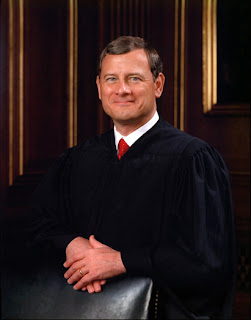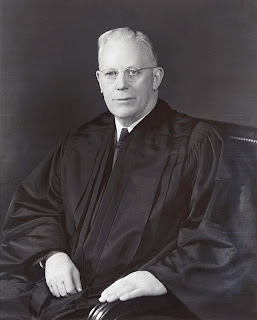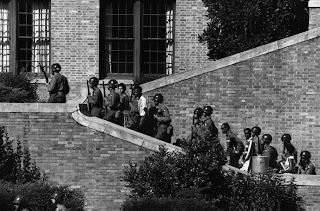There have been a lot of consequential decisions handed down by the Supreme Court lately.
Perhaps one could argue that all decisions made by the Supreme Court are consequential.
There was the decision on Arizona’s immigration law and there was the decision on Obama’s healthcare plan. There was the decision about giving minors a life sentence without parole and there was the decision about how much power Unions have over non-union members. There was also the decision about how strict the FCC can be over incidents of expletives and nudity on television.
In the midst of all of this recent uproar, I have been thinking about and looking back on past years of the Supreme Court.
One thing I have found interesting is that this Roberts Court has changed, or at least interrupted, the trend of the Supreme Court to become more and more broad and momentous in its decisions.
Until the 1940’s or 1950’s, the Supreme Court simply made decisions on the cases it was given. Around the mid-twentieth century though, especially during the Warren Court, the Court began making broader and more sweeping decisions that affected the policy of the entire United States rather than solely impacting the case or the law that was under judgement.
This trend has had the effect of giving the Supreme Court the sort of power that is held by Congress and the President. The sort of power that can change the law and policy of our country.
The Roberts Court seems to be deliberately scaling back this trend. The majority of the judgments handed down by this current Court are much more narrow, are applied only to the particular case in dispute rather to the entire country. I will let people who are smarter than I tell you why this is, but one thing I find of interest about this is that there have been many more unanimous decisions with this Court than in the past.
Another interesting effect of this narrowing of the role of the Supreme Court has been that, until fairly recently, the Court has faded a bit in the public eye. Chief Justice Roberts seems to be comfortable with not setting his aim for creating a public legacy, for making himself and his Court more important.
I wonder what you think. Should the role of the Supreme Court be more broad, affecting public policy in a large way, or should decisions be more narrow, confined to the case and the law in question?
I think that many conservative Christians would instinctively lean toward the latter opinion. After all, wasn’t it the comprehensive judgement in Roe v. Wade that made abortion legal and set our hearts to aching for all of those unborn babies?
Yet in the interest of conversation and in the interest of using our hearts and minds rather than only our hearts, we should think about other changes the Court has made over the years. Good changes as well as poor changes.
The first and biggest example that leaps to my mind is the very broad judgement in Brown v Board of Education. If you need refreshing on your case names, this is the judgement that paved the way for the ending of racial segregation in our country. This is the decision that stated that separate is not equal.
Who of us would ever say that ending racial segregation was a bad thing? Yet when Congress wouldn’t do the job it should have done, it took the Supreme Court making an encompassing judgement to change the policy of our nation.
So. Narrow or broad? Case-deciding or policy-changing? Should the policy and laws of this country be decided only by an elected Congress and President or should the appointed Supreme Court be allowed to step in when others are not courageous enough to do the hard thing? And who gets to decide which hard thing is right: abortion, segregation, right to an attorney, gay marriage?
I’m interested to hear what you think.
I’m interested to continue watching the Roberts Court and to discover where they will lead our country.





